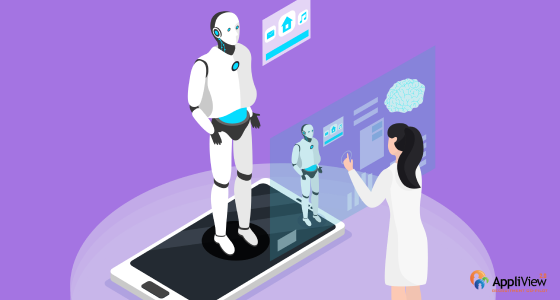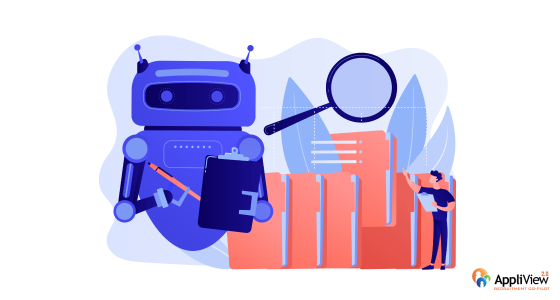How Artificial Intelligence is Shaping the Future of HR Departments
November 15, 2024

AI is transforming HR by streamlining recruitment, enhancing employee experience, and improving diversity efforts. With automated resume screening, predictive hiring analytics, and personalized L&D programs, HR departments can work more efficiently and strategically.
How Artificial Intelligence is Shaping the Future of HR Departments
Human Resources departments are rapidly embracing artificial intelligence to transform traditional practices. As organizations strive to stay competitive, AIoffers HR the tools to improve efficiency, streamline operations, and enhance employee experience.
Section 1: AI in Talent Acquisition and Recruitment

AI-powered tools can analyze thousands of resumes in a fraction of the time it would take human recruiters, filtering candidates based on pre-defined criteria and predicting cultural fit.
- Automated Resume Screening : By using natural language processing (NLP), AI can automatically screen resumes, identifying key skills and qualifications that match the job description. This cuts down the time and effort spent on initial screening.
- Chatbots for Initial Candidate Interaction : AI-driven chatbots engage candidates at the early stages, answering basic questions and even scheduling interviews. This immediate responsiveness enhances the candidate experience while freeing up HR professionals for more strategic tasks.
- Predictive Analytics for Hiring Decisions : AI can also predict which candidates are more likely to succeed in a given role, allowing HR departments to make more informed hiring decisions and reduce turnover rates.
Section 2: Improving Employee Experience with AI
AI-driven platforms enable personalized learning and development plans, real-time feedback mechanisms, and data-driven insights into employee satisfaction.
- Personalized Learning and Development : AI can analyze employees’ skills and suggest personalized L&D resources to help them grow in their roles. Platforms that offer AI-powered training recommendations boost engagement and retain top talent by catering to individual learning preferences.
- Sentiment Analysis and Real-Time Feedback : AI tools analyze employee feedback in real time, enabling HR teams to gauge employee morale and sentiment. This helps organizations to proactively address concerns, making employees feel heard and valued.
- AI-Driven Employee Assistance Programs : Chatbots and virtual assistants can provide instant support to employees, answering questions related to policies, benefits, and onboarding. This improves access to information and creates a seamless experience for employees across all levels.
Section 3: Streamlining HR Operations with Automation

AI is instrumental in automating repetitive and time-consuming tasks, allowing HR professionals to focus on high-impact work that adds strategic value to the organization.
- Payroll and Attendance Automation : AI-powered systems automate payroll, attendance, and leave management. This minimizes errors, ensures compliance, and saves HR departments significant administrative time.
- Performance Management with Data Analytics : HR teams can use these insights to guide performance reviews and make data-informed decisions about promotions and training.
- Automated Compliance Checks : AI-based tools help HR departments remain compliant by monitoring changes in labor laws and regulations, alerting the team to necessary updates and automatically adjusting policies to ensure adherence.
Section 4: AI’s Role in Diversity, Equity, and Inclusion
AI can significantly contribute to building a more diverse and inclusive workplace by eliminating biases in hiring, promotions, and engagement practices.
- Bias-Free Hiring Processes : By removing human biases from initial screenings, AI ensures that candidates are assessed based on merit and qualifications rather than subjective factors.
- Monitoring DEI Metrics in Real Time : AI can analyze employee data to identify diversity gaps, track representation across departments, and provide insights that guide DEI strategies.
- Improving Accessibility and Inclusivity : AI-based tools, such as language processing applications and accessibility software, ensure HR practices are inclusive to individuals with disabilities, reinforcing a commitment to DEI.
Section 5: The Future of AI in HR: Challenges and Opportunities
While the benefits of AI in HR are extensive, there are challenges, such as privacy concerns, the need for ongoing training, and the risk of over-reliance on automated systems.
- Data Privacy and Ethics : As HR handles sensitive employee data, it is crucial to maintain privacy and use AI responsibly. AI systems should be transparent and ethical in data usage to build trust with employees.
- Balancing AI with Human Interaction : Although AI can enhance efficiency, it is essential for HR departments to strike a balance between automation and personal touch to maintain a positive and empathetic work environment.
- Continuous Learning and Adaptation : The AI landscape is rapidly evolving, requiring HR teams to stay updated on the latest technologies and adapt their practices accordingly.
Conclusion
The impact of artificial intelligence on HR is profound, with capabilities that extend across recruitment, employee engagement, operational efficiency, and inclusivity. By integrating AI, HR departments can achieve new levels of productivity and create a workforce that is both engaged and empowered.
